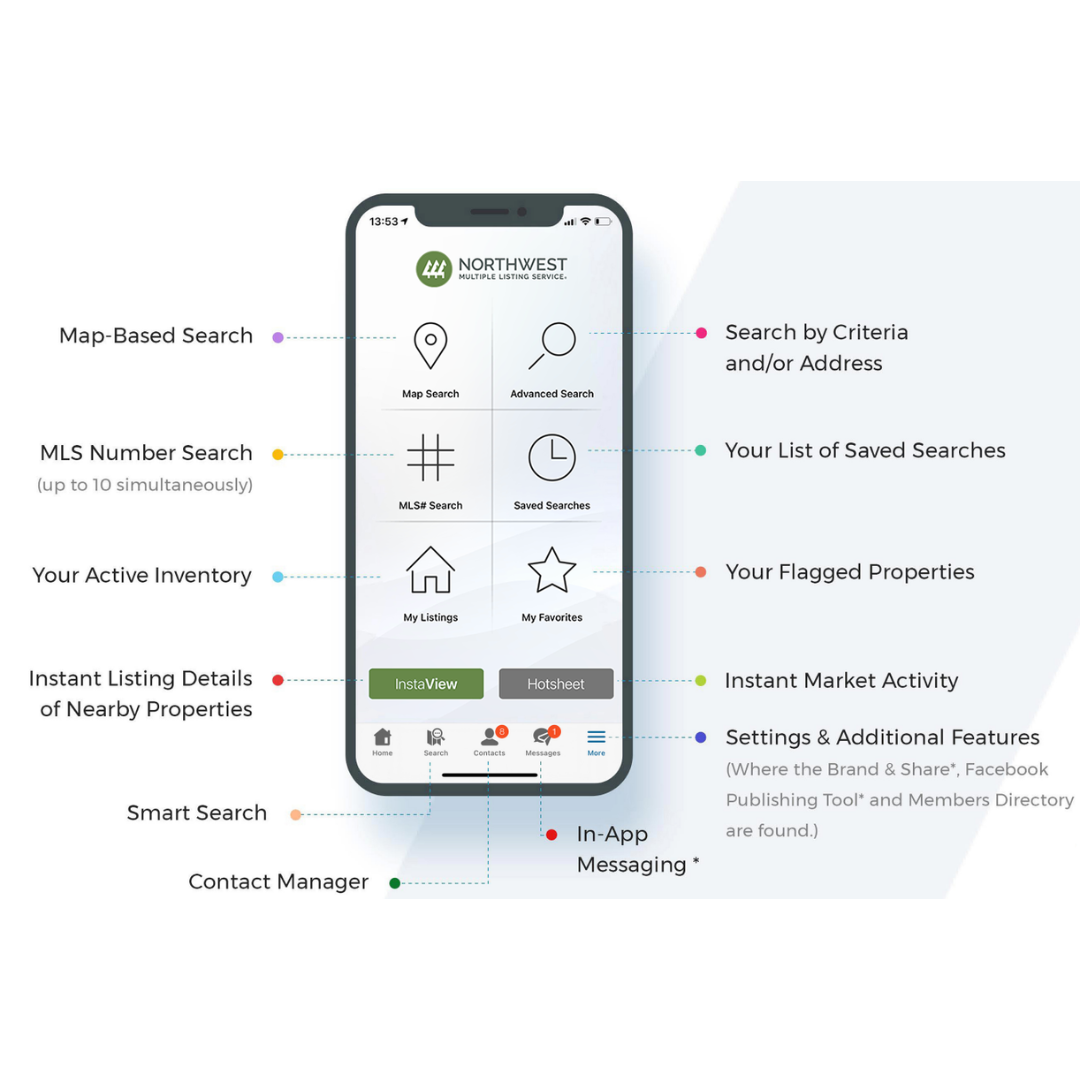What You Need to Know Before Accepting — or Rejecting — an Offer
It’s not always about the money (except when it is).
The day will come — and it will be a wonderful, joyous, do-a-happy-dance day — when you receive an offer, or multiple offers, for your home.
And on that day, you’re going to face a question you may not have previously considered: How do you know if an offer is the best one for you?
Your listing agent will be a big help here. They will understand and help you suss out the merits and faults of an offer because — believe it or not — it’s not always about price.
One buyer’s beautifully high offer might not look so good anymore, for example, if you discover that it’s contingent upon you moving out a month earlier than planned. Or, conversely, you may prefer speed over price, particularly if you’re moving to a new city.
Your listing agent will have a sense of what you want financially and personally — and can help you determine whether the offer at hand satisfies those goals.
Before the first offer rolls in, here’s what you need to know about the offer evaluation process, including the main factors that should go into making a decision — accept or reject? — with your agent.
5 Important Things — Other Than Price — to Consider When Evaluating an Offer
Want to fetch top dollar for your home and walk away with as much money in your pocket as possible? Of course you do. You’ve gone through the time-consuming process of setting your asking price , staging your home , promoting your listing, and preparing for open houses — and should be rewarded for your efforts.
Your first instinct may be to just pick the highest bid on the table. But the offer price isn’t the only thing worth considering.
When vetting offers, evaluate these five areas in addition to price:
1. THE EARNEST MONEY DEPOSIT. One important consideration when weighing an offer is the size of the earnest money deposit. The EMD is the sum of cash the buyer is offering to fork over when the sales agreement is signed to show the person is serious (i.e., “earnest”) about buying your home. This money, which is typically held by a title company, will go toward the buyer’s down payment at closing.
A standard EMD is 1% to 3% of the cost of the home (so, that would be $2,000 to $6,000 on a $200,000 house). If a buyer tries to back out of an offer for no good reason, the seller typically keeps the EMD. Therefore, the higher the earnest money, the stronger the offer.
2. THE CONTINGENCIES. Most offers have contingencies — provisions that must be met for the transaction to go through, or the buyer is entitled to walk away from the deal with their earnest money. Contracts with fewer contingencies are more likely to reach closing, and in a timely fashion.
Here are five of the most common contingencies:
- Home inspection contingency. This gives the buyer the right to have the home professionally inspected and request repairs by a certain date — typically within five to seven days of the purchase agreement being signed. Depending on where you live, you may be required to make home repairs for structural defects, building code violations, or safety issues. Most repair requests are negotiable, though, so you have the option to haggle over which fixes you’re willing to make.
- Appraisal contingency. For a mortgage lender to approve a home buyer’s loan, the home must pass appraisal — a process during which the property’s value is assessed by a neutral third party. The appraisal verifies that the home is worth at least enough money to cover the price of the mortgage. (In the event the buyer can’t make their mortgage payments, the lender can foreclose on the home and sell the property to recoup all — or at least some — of its costs.) Generally, the home buyer is responsible for paying for the appraisal, which typically takes place within 14 days of the sales contract being signed.
- Financing contingency. Also called a loan contingency or mortgage contingency, a financing contingency protects the buyer in the event their lender doesn’t approve their mortgage. Although the timeframe for financing contingencies can vary, mortgage lenders report that buyers generally have about 21 days to obtain mortgage approval.
- Sale of current home contingency. Depending on the buyer’s financial situation, their offer may be contingent on the sale of their home. Usually, buyers have a window of 30 to 90 days to sell their house before the sales agreement is voided. This contingency puts you, the seller, at a disadvantage because you can’t control whether the buyer sells their house in time.
- Title contingency. Before approving a mortgage, a lender will require the borrower to “clear title” — a process in which the buyer’s title company reviews any potential easements or agreements that are on public record. This ensures the buyer is becoming the rightful owner of the property and the lender is protected from ownership claims over liens, fraudulent claims from previous owners, clerical problems in courthouse documents, or forged signatures.
These contingencies are standard for most real estate sales contracts. There’s one exception: the sale of current home contingency, which tends to be used more often in strong buyer’s markets, when buyers have greater leverage over sellers.
That being said, contingencies are always negotiable. (The caveat: Mortgage lenders require borrowers to have appraisal financing contingencies, or they won’t approve the loan.) It’s up to you to decide what you’re comfortable agreeing to, and your agent can help you make that decision.
3. THE DOWN PAYMENT. Depending on the type of mortgage, the buyer must make a down payment on the house — and the size of that down payment can affect the strength of the offer. In most cases, a buyer’s down payment amount is related to the home loan they’re taking out. Your chief concern as a seller, of course, is for the transaction to close — and for that to happen, the buyer’s mortgage has be approved.
Generally, a larger down payment signals the buyer’s financial wherewithal to complete the sale. The average down payment, according to the NATIONAL ASSOCIATION OF REALTORS ® , is 10%. Some mortgage products, such as FHA and VA loans, allow for even lower down payments.
If, by chance, the appraisal comes in higher than your contract’s sale price, the buyer with a higher down payment would more likely be able to cover the difference with the large amount of cash they have available.
4. THE ALL-CASH OFFER. The more cash the buyer plunks down, the more likely the lender is to approve their loan. That’s why an all-cash offer is ideal for both parties. The buyer doesn’t have to fulfill an appraisal contingency — whereby their lender has the home appraised to make sure the property value is large enough to cover the mortgage — or a financing contingency, which requires buyers to obtain mortgage approval within a certain number of days. As always, having a sales contract with fewer contingencies means there are fewer ways for the deal to fall through.
5. THE CLOSING DATE. Settlement, or “closing,” is the day when both parties sign the final paperwork and make the sale official. Typically, the whole process — from accepting an offer to closing — takes between 30 and 60 days; however, the average closing time is 42 days, according to a report from mortgage software company Ellie Mae.
Three days before closing, the buyer receives a closing disclosure from the lender, which he compares with the loan estimate he received when he applied for the loan. If there are material differences between the buyer’s loan estimate and closing disclosure, the closing can’t happen until those amounts are reviewed and approved. But this is rare.
Some transactions can take more time, depending on the buyer’s financing. For example, the average closing time for a Federal Housing Administration (FHA) loan is 43 days, according to Ellie Mae.
Whether you want a slow or quick settlement will depend on your circumstances. If you’ve already purchased your next home, for instance, you probably want to close as soon as possible. On the other hand, you may want a longer closing period — say, 60 days — if you need the proceeds from the sale to purchase your new home.
When Should You Make a Counteroffer?
Depending on the circumstances, you may be in the position to make a counteroffer. But every transaction is different, based on the particular market conditions and your home. In some circumstances, you can be gutsy with your counteroffer. In others, it might serve your goals better to give in to the buyer’s demands. Your agent can provide helpful insight about when and why a counteroffer will be the right thing for you.
For instance: If you’re in a seller’s market — meaning that homes are selling quickly and for more than the asking prices — and you received multiple offers, your agent may recommend you counteroffer with an amount higher than you would have in a buyer’s market.
If you choose to write a counteroffer, your agent will negotiate on your behalf to make sure you get the best deal for you.
A caveat: In many states sellers can’t legally make a counteroffer to more than one buyer at the same time, since they’re obligated to sign a purchase agreement if a buyer accepts the new offer.
When Does an Offer Become a Contract?
In a nutshell, a deal is under contract when the buyer’s offer (or seller’s counteroffer) is agreed upon and signed by both parties. At that point, the clock starts ticking for the home buyer’s contingencies — and for the sweet moment when the cash — and home — is yours.
HOUSELOGIC
HouseLogic helps consumers make smart, confident decisions about all aspects of home ownership. Made possible by REALTORS®, the site helps owners get the most value and enjoyment from their existing home and helps buyers and sellers make the best deal possible.
The post What You Need to Know Before Accepting — or Rejecting — an Offer first appeared on Andi Dyer.
Sterling Real Estate News












